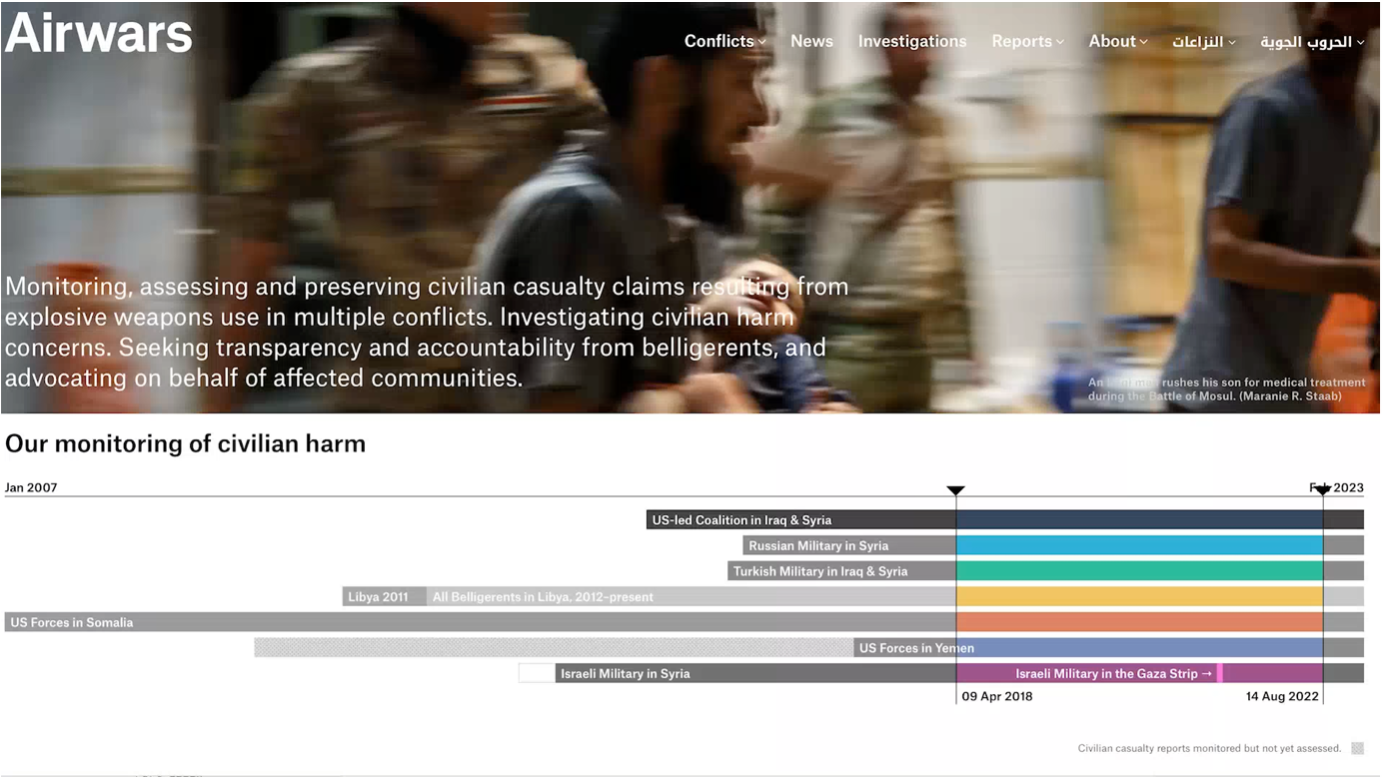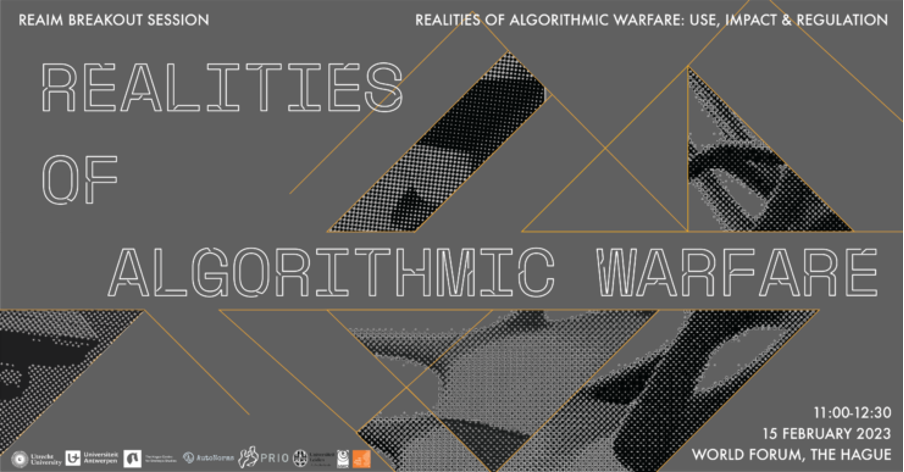Contesting Governance RAW project kicks off RE-AIM Summit: with a panel discussing the realities of autonomous warfare.
On 15 February 2023, IRW’s Realities of Algorithmic Warfare (RAW) project co-hosted the ‘Realities Algorithmic Warfare: Use, Impact and Regulation’ break-out session at the RE-AIM Summit in The Hague. RE-AIM brought together some 2500 attendees, including representatives from 80 governments, to discuss the risks and opportunities of military AI, fostering debate on the use and deployment of the technologies.
Scheduled right after the thought-provoking summit opening session, the RAW consortium drew a packed room with over 300 politicians, academics, NGO’s and representatives of ministries of defence. Watch the entire breakout-session here.
Moderated by HCSS’ Dr Tim Sweijs, the first panel focused on the realities of the ‘Use’ of military AI. Here, AUTONORMS researcher Dr. Ingvild Bode immediately brought the realities to the table with a reflection on specific military applications of system autonomy and the theatres of war they are already reshaping today. Commodore Frans Osinga talked about de-hyping AI in the military domain, while also stating that "the train has left the station”. Osinga reflected on the reasons why militaries would want to pursue these technologies, and the scope of resources militaries and commercial parties are already investing in these technologies today. The more investments go into AI, the more AI will become normalised.
Moderated by RAW’s Jessica Dorsey, the second panel dove into the realities of the ‘Impact’ of military AI. Dr. Tim Sweijs stressed the effects are “rather evolutionary than revolutionary”. IRW’s Dennis Jansen reflected on the impact of AI in Ukraine and the empowerment of the individual soldier along with the gamification of combat that is taking place there. Jansen also linked to remote warfare here, explaining how the individual soldier can operate ever more remotely from just behind frontline. Dr Marijn Hoijtink disagrees with Osinga, being of the opinion that AI and associated technologies are the reason that the approach to warfare is changing. Hoijtink continued on the experimental way of warfare that raises pressing questions regarding transparency, accountability, and democratic control. With humans increasingly being removed from the kill chain, algorithms play a larger role in deciding who will become a target of lethal force. Who do you hold responsible and accountable when the wrong person is killed? History has illustrated that AI often gets things wrong (i.e. in hiring processes or ethnic profiling), these issues are only likely to be compounded in complex and chaotic theatres of war.
Airwars contributed a thought provoking video describing how they monitor the large amount of civilian harm that is already occurring as a result of advanced militaries engaging in remote targeting. The film also highlights how (Western) advanced militaries collect very little data on who, be it civilian or combatant, they have targeted in particular airstrikes and raises the pressing issue that without this data you cannot train machines to target in an accurate and proportionate manner. Weapon systems will therefore more likely exacerbate civilian harm and destruction, not resolve it. Watch it below.

Moderated by Dr. Marijn Hoijtink, the third and last sub-panel brought the focus to the realities of regulation of military AI. Jessica Dorsey pointed out that there is not enough insight into how AI systems actually judge information and make decisions based on that information. She emphasised how this can affect the legitimacy of military operations and it is therefore important not just for lawmakers, but just as much for military personnel and the public as a whole. Anna Nabidaidze talked about how currently, little legal progress has been made on the subject of military AI. She suggested different ways of getting to a legal consensus on the topic. She further stressed that we need to establish norms and regulations to work with, which will benefit all parties involved with military AI. Samar Abbaz Nawaz explained that one of the challenges for the legal aspect of AI is the concept of ‘autonomy’ itself, advocating for more control, based on the type of technology that is being used.
Together, the sub-panels provided a deeper understanding of how and where (semi) autonomous weapon systems are being experimented with and deployed today, how they are reshaping the character of warfare and at what risk for civilians, and how these developments undermine political control and legal regulation possibilities. The contributions made by the RAW consortium were widely praised during the remainder of the RE-AIM Summit and explicitly built upon in later sessions and discussions.
After the session, RAW project leader Jessica Dorsey was interviewed by Reuters, read the full interview here. And by Courthouse News, see here.
After the session our panellist Dr. Marijn Hoijtink gave an interview for BNR, read the full interview here.
Panellists included
- Dr. Ingvild Bode, Associate Professor, Center for War Studies, University of Southern Denmark
- Jessica Dorsey, Assistant Professor of International and European Law and Project Leader, Realities of Algorithmic Warfare, Utrecht University
- Dr. Lauren Gould, Assistant Professor Conflict Studies and Project Leader, Realities of Algorithmic Warfare, Utrecht University
- Dr. Marijn Hoijtink, Associate Professor in International Relations, University of Antwerp
- Dennis Jansen, M.A., PhD Candidate, Utrecht University
- Prof. Dr. Frans Osinga, Special Chair in War Studies, Leiden University and Professor of War Studies at the Netherlands Defence Academy
- Dr. Tim Sweijs, Director of Research, The Hague Centre for Strategic Studies & Netherlands War Studies Research Centre
- Ms. Anna Nadibaidze, PhD Fellow, University of Southern Denmark
- Samar Abbas Nawaz, Doctoral Researcher, Peace Research Institute Oslo (PRIO)
- Dr. Tom F.A. Watts, Leverhulme Early Career Research Fellow, Royal Holloway, University of London


